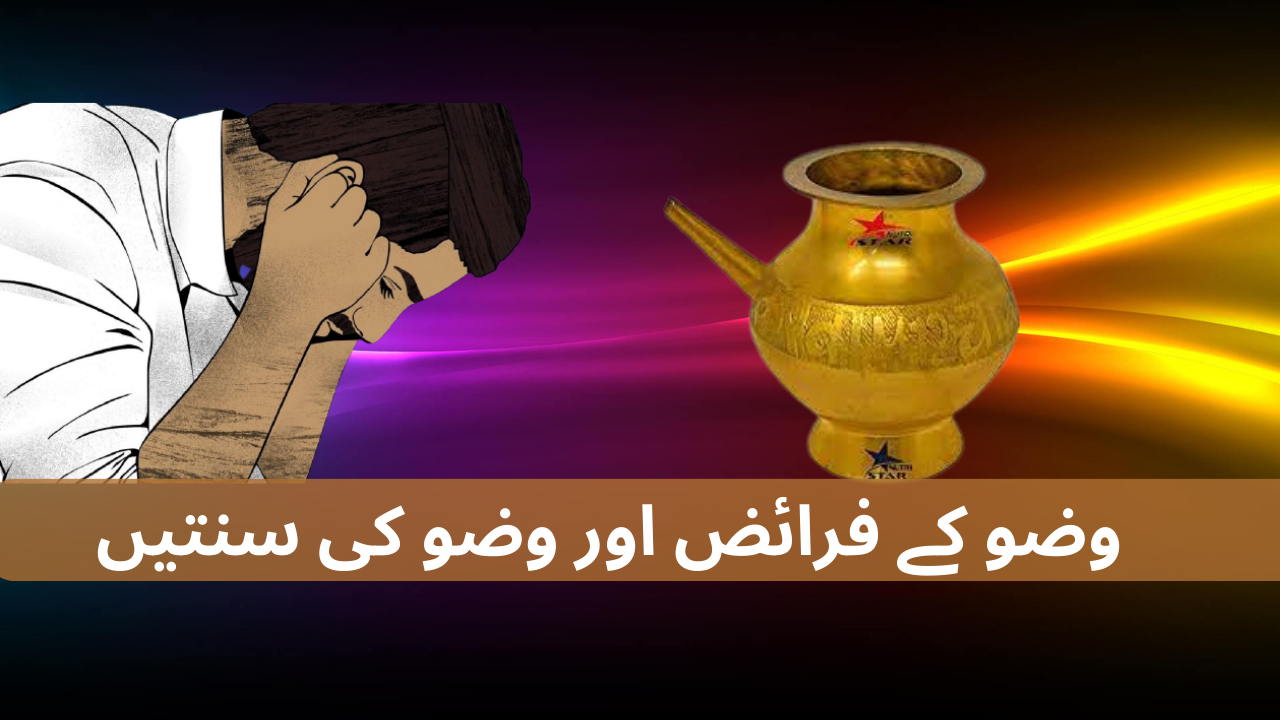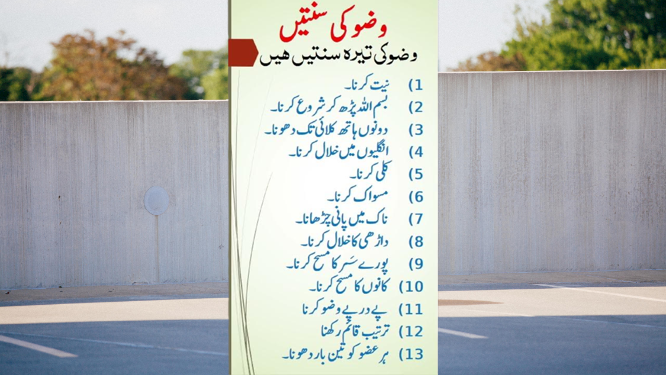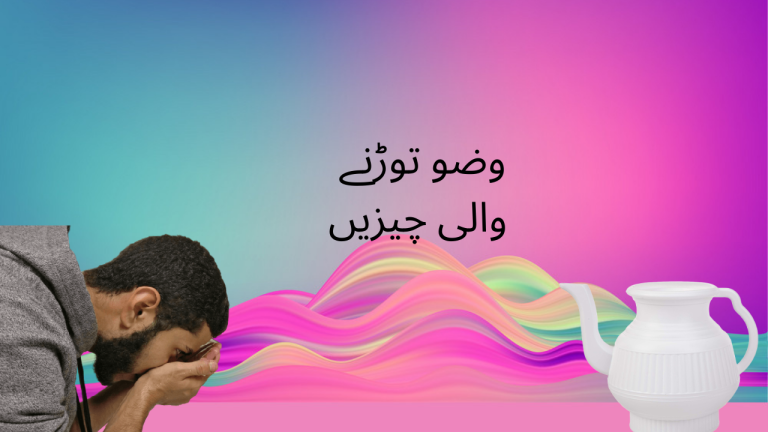Wazoo K Faraiz Or Sunah Read In English And Urdu

Wazoo K Faraiz Or Sunah Read In English And Urdu Wazoo, also known as ablution, holds a sacred place in the practice of Islam. This essential ritual involves the physical purification of a believer before engaging in acts of worship, such as prayer or touching the Quran.
Wazoo K Faraiz Or Sunah Read In English And Urdu
At its core, Wazoo symbolizes not only the cleansing of the body but also the purification of the soul, preparing the individual to stand before the Divine.
Wazoo The Ritual of Spiritual Purification
The Faraiz, or obligatory elements, of Wazoo are the foundation of this ritual. The process begins with a sincere intention, a silent declaration of one’s devotion to Allah. As water flows over the face, hands, forearms, head, and feet, a profound connection with the Divine is forged. Each element is meticulously performed in a specific sequence, emphasizing the importance of discipline and order in the practice of faith.
Yet, Wazoo is not merely a mechanical act; it is a spiritual journey. The Sunnah, or recommended elements, embellish this journey, encouraging the believer to approach Wazoo with even greater devotion. The use of Miswak or toothbrush highlights the significance of cleanliness, while reciting “Bismillah” invites Allah’s blessings into the process.
Wazoo is a reminder of the constant striving for purity and humility in the face of life’s challenges. It is a spiritual armor, strengthening the believer’s connection with the Divine, ensuring that each act of worship is performed with a heart cleansed of worldly distractions. Through the ritual of Wazoo, the believer’s journey towards spiritual fulfillment is paved with drops of water and illuminated by the light of devotion, ultimately leading to a deeper connection with Allah.
Faraiz And Sunah Of The Wazoo
Wazoo (وضو), also spelled “wudu” or “ablution” in English, is the Islamic ritual purification process that involves washing specific parts of the body before performing acts of worship, such as Salah (prayer) or handling the Quran. Wazoo has both “Faraiz” (obligatory elements) and “Sunnah” (recommended or voluntary elements). Here are the obligatory (Faraiz) and recommended (Sunnah) components of Wazoo:
Faraiz (Obligatory Elements) of Wazoo:
- Intention (Niyyah): One must have the intention to perform Wazoo for the sake of Allah (God).
- Washing the face (Mentioned in the Quran – Surah Al-Ma’idah, 5:6): The entire face, from the hairline to the chin and from ear to ear, must be washed.
- Washing the hands and forearms (Mentioned in the Quran – Surah Al-Ma’idah, 5:6): Starting from the fingertips and ending at the elbows, both arms must be washed.
- Wiping a portion of the head: A portion of the head, usually the top, must be wiped with wet hands.
- Washing the feet (Mentioned in the Quran – Surah Al-Ma’idah, 5:6): Both feet, up to and including the ankles, must be washed.
- Sequence: These actions must be performed in the specified sequence, without significant interruptions between them.
- Continuity: There should be no long gaps between washing different body parts, to ensure the flow of water is continuous.
- Using clean water: The water used for Wazoo should be clean and pure.
Sunnah (Recommended Elements) of Wazoo:
- Miswak (tooth-stick) or brushing teeth: It is recommended to use the Miswak or a toothbrush before beginning Wazoo.
- Reciting Bismillah (In the name of Allah, the Most Gracious, the Most Merciful) before starting: While not obligatory, it is a recommended practice to begin Wazoo with the recitation of Bismillah.
- Starting with the right side: It is a Sunnah to begin Wazoo by washing the right side of the body parts before the left side.
- Performing each action three times: While the Faraiz require each part to be washed once, it is recommended (Sunnah) to wash each part three times.
- Wiping the ears: After wiping the head, it is Sunnah to wipe the ears both inside and outside.
- Maintaining a sense of humility and focus: While performing Wazoo, it is recommended to do so with concentration and devotion, remembering Allah.
- Praying two Rak’ahs (units of prayer) after Wazoo: Some scholars recommend praying two Rak’ahs after performing Wazoo.
It’s important to note that the exact practices and emphasis on Sunnah elements can vary among different Islamic schools of thought. Some may emphasize certain Sunnah actions more than others. However, the Faraiz are generally agreed upon by all Islamic scholars and schools of thought as the obligatory components of Wazoo.
Benefits Of Wazoo
Wazoo (ablution) in Islam offers numerous physical, spiritual, and psychological benefits. Here are some of the key advantages of performing Wazoo:
1. Physical Cleansing: Wazoo involves washing specific body parts thoroughly, which helps maintain personal hygiene. This practice prevents the accumulation of dirt, germs, and impurities on the face, hands, and feet, promoting physical cleanliness.
2. Spiritual Purification: Wazoo is not just a physical cleansing ritual; it is also a means of spiritual purification. It symbolizes the removal of impurities not only from the body but also from the soul. Muslims believe that Wazoo prepares them for acts of worship, making them spiritually pure and more focused on their prayers.
3. Mental Clarity: Performing Wazoo can have a calming and soothing effect on the mind. The act of washing each body part with intention and focus can clear the mind of distractions, stress, and worldly concerns, preparing the individual for prayer and spiritual reflection.
4. Increased Concentration: Wazoo encourages mindfulness and concentration. By following a specific sequence of actions and reciting prayers, individuals can improve their ability to concentrate during acts of worship, such as Salah (prayer).
5. Symbolic Act of Obedience: Wazoo is considered an act of obedience to Allah’s commandments. By faithfully performing Wazoo, Muslims demonstrate their submission to God’s will and their commitment to following the teachings of Islam.
6. Preparation for Prayer: One of the primary purposes of Wazoo is to prepare Muslims for Salah (prayer). Wazoo ensures that individuals are physically and spiritually ready to stand before Allah in prayer, enhancing the quality of their worship.
7. Enhanced Spiritual Connection: Wazoo serves as a spiritual connector between the worshipper and Allah. It is a reminder of the importance of purity and humility in the presence of the Divine, strengthening the believer’s connection with God.
8. Ritual of Community: Wazoo is a shared practice among Muslims, reinforcing a sense of community and unity among believers. It is a common ritual performed before congregational prayers, reinforcing the bond among worshippers.
9. Hygienic Benefits: Regularly performing Wazoo can contribute to better overall hygiene. Washing the hands and face, in particular, can help prevent the spread of diseases and infections.
10. Daily Spiritual Renewal: For practicing Muslims, Wazoo is not a one-time ritual but a daily practice. This regular purification process serves as a reminder of their faith and commitment to Islam, providing a sense of daily spiritual renewal.
In summary, Wazoo is a multifaceted practice in Islam, offering physical, spiritual, and psychological benefits. It combines personal hygiene with spiritual devotion, helping individuals maintain physical cleanliness while fostering a deeper connection with Allah and enhancing their worship experience.
Conclusion
In conclusion, Wazoo, the Islamic ritual of ablution, serves as a bridge between physical purity and spiritual devotion. It offers Muslims a means to cleanse their bodies and minds, fostering mental clarity, concentration, and a deeper connection with Allah.
Beyond its hygienic benefits, Wazoo is a symbol of obedience, unity among believers, and daily spiritual renewal. This sacred practice embodies the essence of Islamic faith, reminding individuals of their commitment to Islam’s teachings and their continuous journey towards spiritual purification and growth.


